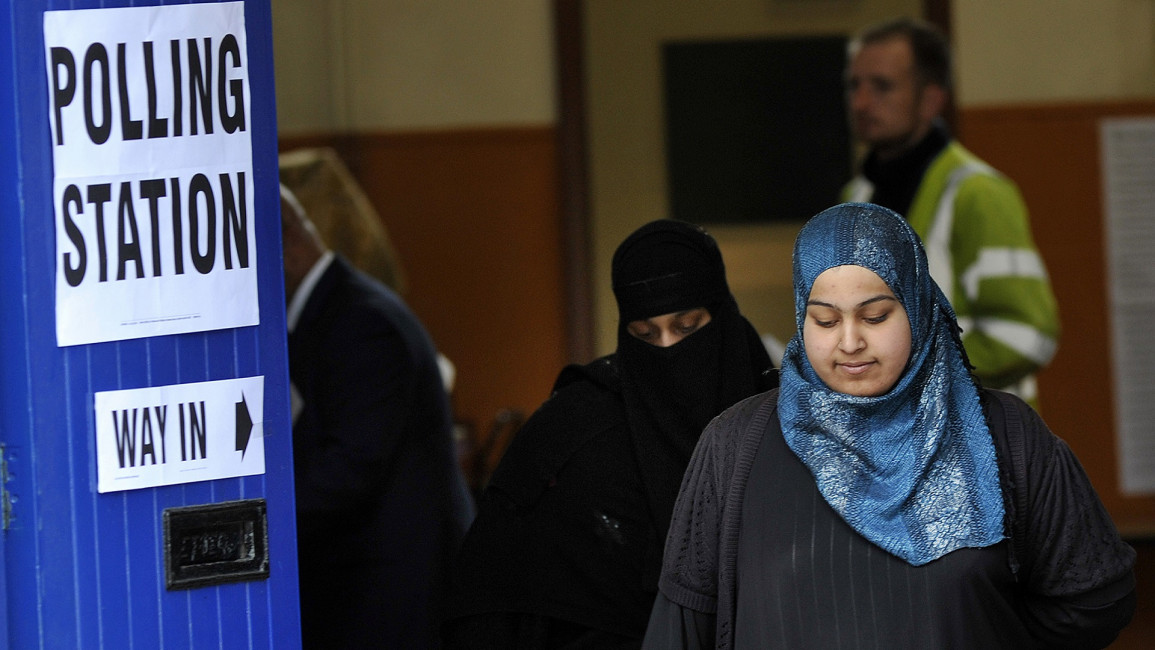
Lebanese-style identity politics set tone for UK elections
Traditionally seeing smaller turnouts than the general elections, the local elections this time round will likely be seen as a referendum on the leadership of Jeremy Corbyn and his Labour Party's popularity since he took over in September. The party's election has been hit by a Conservative-led right-wing campaign fuelling an "anti-Semitism" row.
In London, the mayoral election pitting the super-wealthy Conservative Zac Goldsmith, whose father was Jewish, against Muslim second-generation immigrant Sadiq Khan of the Labour Party has seen divisive issues of identity and multiculturalism thrust into the fore.
The Conservative candidate - and front bench members of the British government - have ventured into borderline Islamophobia as they accused Khan of supporting "extremism".
Khan's supporters accused the Conservatives of using "dog-whistle" politics to smear the candidate's name with an unspoken racist narrative that conflates Islam and violence.
The local elections will set the tone for the referendum on the UK's membership of the European Union later in June, and determine whether pro-UK Labour can challenge Scotland's immensely popular Scottish National Party and thwart its plans for a second independence vote.
 |
The voting will be Corbyn's most important test yet as Labour leader |  |
The voting will be Corbyn's most important test yet as Labour leader, say independent experts. A disastrous result for Labour could see his rivals in the party stage a leadership challenge, some observers have said.
However, measuring the performance of a political party in local elections isn't simple, as voting doesn't take place simultaneously across the entire UK, according to BuzzFeed's Europe editor.
 |
The anti-Semitism row, meanwhile, has caused a lot of damage to the Labour Party |  |
The comments were quickly exploited as election fodder by Labour's opponents in the Conservative Party and the right-wing media, but Jeremy Corbyn has said his party has now overcome the row.
On Tuesday the British media reported that the Labour party "secretly suspended" some 50 of its members for anti-Semitic and racist comments.
According to a Sunday Times survey of local government by-election results, Labour is currently on a national equivalent vote share of 30 percent, while the Conservatives have a national equivalent of 31 percent.
If these figures are reflected in Thursday's results, Corbyn's party could lose about 150 seats in England and each of its opponents make modest gains.
However, Corbyn has said Labour will not lose seats on Thursday.
 |
In London's mayorals, the campaign has been dominated by negativity |  |
In London's mayorals, the campaign has been dominated by negativity.
Conservative Goldsmith, with support from Tory Prime Minister David Cameron and Defence Minister Michael Fallon, has focused his criticism of his opponent Sadiq Khan on the Muslim candidate's background. They went as far as accusing him of being a "radical" and "divisive" candidate.
Khan has consistently dismissed these accusations as "desperate stuff". And against attempts to draw him into the anti-Semitism row, he has publicly disavowed the comments at the heart of the issue, calling them "appalling and inexcusable".
The 45-year-old, the son of a Muslim Pakistani immigrant bus driver, became a human rights lawyer and government minister. Ecologist Goldsmith, 41, is a son of the late Jewish-British tycoon financier James Goldsmith, a scion of one of Britain's wealthiest families.
Despite the surface-level rancour, both candidates accept that the sky-high cost of homes and the city's Victorian-rooted transport system are the dominant issues for voters.
Final opinion polls put Khan 12 to 14 points ahead on first preferences.
 |
The results of the local elections will likely set the tone for the final seven weeks of campaigning ahead of Britain’s June 23 EU membership referendum |  |
In the devolved Scottish Parliament, First Minister Nicola Sturgeon's pro-independence party is looking to tighten its hold on power as it seeks to build support for a second vote on seceding from the UK following a failure to pass the motion in 2014.
If Britain as a whole votes to leave the European Union but Scotland votes to stay in, Sturgeon says that would be a reason for her Scottish National Party to demand another independence referendum.
In Wales, polls put Labour on course to retain their dominance. The Conservatives and left-wing nationalists Plaid Cymru are vying for second place.
In Northern Ireland, where power is shared between parties, the Democratic Unionists (pro-British Protestant conservatives) were narrowly ahead of Sinn Fein (left-wing Irish republicans) in the final opinion polls.




